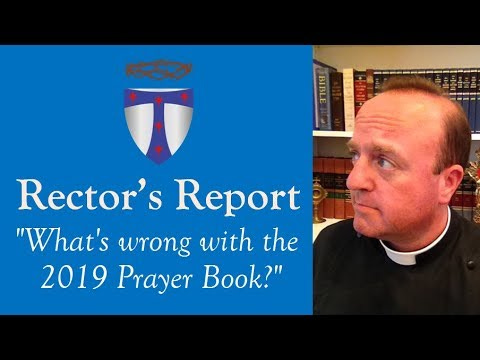Good article follow-up on the ACNA 2019 Prayer Book:
http://www.forwardinchristmagazine.com/2020/02/when-you-cant-do-red.html
What is the piscina (also called a sacrarium)? It is a sink in the sacristy that empties onto the ground rather than in the sewer. To be absolutely clear, the precious Blood should never be poured in the piscina. That is only for blessed salt, holy water, and for the washing of linens. Pouring the precious Blood down the piscina is a sacrilege. To demonstrate the seriousness of the matter, in the Roman Catholic Church you are automatically excommunicated for doing such a thing, and only the pope can lift that kind of excommunication. If a cleric, you can also be defrocked. So this is extremely serious.
I will not give a detailed analysis of the new version, except to say that it is an improvement, though not entirely satisfactory. The issue is left more in the domain of custom rather than law, and again, it is all about the bishops. We clearly have a growing edge of maintaining our tradition and growing in our sacramental understanding as a province which (glory to God!) includes many people who have only recently joined us on the Anglican Way and are continuing to absorb the ancient tradition of the Church.
Video he mentions is here:
For reference:
2013 Approved Text (Long and Short Form, published in white booklet):
"If any consecrated Bread or Wine remains after the Communion, it may be reserved for future reception in a safe place set aside for that purpose. Apart from that which is to be reserved, the Priest or Deacon, and other communicants, shall reverently consume the remaining consecrated Bread and Wine either after the Ministration of Communion or after the Dismissal."
2018 Revised Text (Standard and 'Renewed Ancient'):
If any consecrated Bread or Wine remains after the Communion, it may be set aside in a safe place for future reception. Apart from that which is to be set aside, the Priest or Deacon, and other communicants, shall reverently consume the remaining consecrated Bread, either after the Ministration of Communion or after the Dismissal. The Wine shall likewise be consumed or reverently poured upon untrodden ground.
2019 1st Printing Text, found at ACNA Provincial Assembly:
If any consecrated Bread or Wine remains after the Communion, it may be set aside in a safe place for future reception. Apart from that which is to be set aside, the Priest or Deacon, and other communicants, reverently consume the remaining consecrated Bread, either after the Ministration of Communion or after the Dismissal. The wine shall likewise be consumed or reverently poured in a place set aside for that purpose.
2019 Second Printing Text:
If any consecrated Bread or Wine remains after the Communion, it may be set aside in a safe place for future reception. Apart from that which is to be set aside, the Priest or Deacon, and other communicants, reverently consume the remaining consecrated Bread, either after the Ministration of Communion or after the Dismissal. The consecrated wine shall likewise be consumed except as authorized and directed by the bishop.
Bp Duncan's explanation and response to the whole matter is here:




